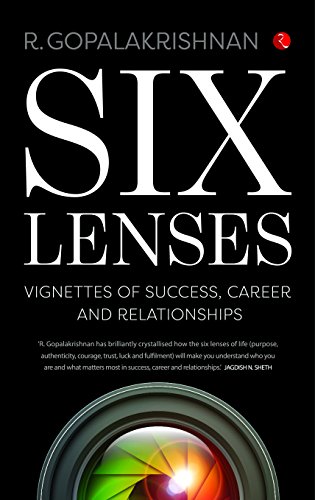Looking for a gap that is shaped like you: An Excerpt from R Gopalakrishnan’s ‘Six Lenses’

When the child born, it can be likened to a smooth pebble of a certain size and colour; both are determined by the genetics. Then as the child grows and throughout the life of the person, experiences leave an impact on the smooth pebble—chips, marks and incisions, so that each pebble develops a unique shape of its own. A France-based American writer, Ms Pamela Druckerman, expressed an imaginative view by suggesting that each person has a shape that must fit into the jigsaw of the world. ‘Somewhere in the world, there is a gap shaped just like you. Once you find it, you will slide right in.’
To illustrate this point about finding a gap that is shaped just like you, I recall the story of how Leela Chitnis, India’s top film star of the 1940s, found the gap shaped like her (‘My Aunt Leela’, Indian Express, October 9, 2005).
Leela was the skinny and gawky daughter of a professor; she wore thick glasses. She fell in love with an urbane gentleman who was fourteen years her senior, Dr Gajanand Chitnis, who was involved with the Marathi stage as a writer and director of plays. Dr Gajanand Chitnis was not economically successful, so the shy and self-conscious Leela started accompanying her husband to the rehearsals; she earned a bit by helping with the costumes and the sets.
Every evening she watched and observed the goings on; something must have been lodging in her brain all the time. One day, the heroine of the play failed to turn up. Leela was thrust on the stage only because she had attended the endless rehearsals. She felt hugely challenged, but she performed with a natural elan—and brilliantly. Very soon roles poured in. Then she signed for her first film.
Until 1940 Lux soap was always advertised with foreign film stars because Indians thought it poor character to model for advertisements. In 1940, when Lux sought Indian models, Leela was the first to be chosen. Soon thereafter, she became the leading Hindi film star. In her quest for a gap she could fit into, she viewed events and things differently from other people.
As Leela’s story of apparent coincidences demonstrates, Leela found the gap that was shaped like her.
***

Almost with a touch of philosophy, yet firmly grounded in the reality of business and national affairs, the author argues that ‘there is no reality, only perceptions of reality.’ Perceptions influence our thoughts and actions and these, in turn, are influenced by the ‘lenses’ through which we see the world. There are six such lenses: purpose, authenticity, courage, trust, luck and fulfilment.
R. Gopalakrishnan uses, as examples, the lives of ‘ordinary people’ to illustrate his view. By rotating the lenses, Gopal attempts to understand what success in career and life really means. While biographies of celebrities are inspiring to read, they are often read like dramatic fairy tales-out of the scope of an average person. But in Six Lenses, Gopalakrishnan narrates the stories of PLUs (people like us)—as he likes to call them—from business and society, whom he has known during his illustrious career. He elucidates the extraordinary lessons that can be learnt from everyday experiences and shows how, by altering our perceptions, we can better overcome the challenges we face at work and in family matters.
Thought-provoking, profound and questioning, Six Lenses will make you look at your life and career in a different light.
***

